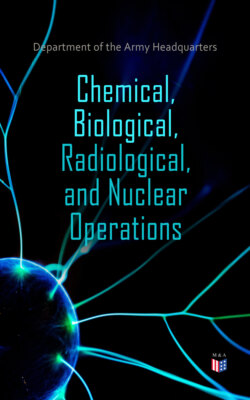Читать книгу Chemical, Biological, Radiological, and Nuclear Operations - Department of the Army Headquarters - Страница 33
На сайте Литреса книга снята с продажи.
1-25. Marine officer commanding ashore.
ОглавлениеTable of Contents
a. When the force landed comprises a marine brigade or smaller organization under the command of a marine officer, and such forces become engaged in a type of operation that does not lend itself to the direct control by the naval commander afloat, many questions with regard to the relationship between the marine forces ashore and the naval forces afloat will present themselves. The marine force commander, in this situation, should not lose sight of, and should make every effort to indoctrinate those under his command with the idea that the task to be accomplished is a “Navy task”; that the responsibility for its accomplishment rests primarily with the immediate superior afloat; and that regardless of any apparent absence of direct supervision and control by such superior, the plans and policies of the naval commander afloat must be adhered to.
b. The vessels of the naval force may be withdrawn from the immediate theater of operations; the naval commander may assign certain vessels to routine patrol missions along the coast; while he, himself, may return to his normal station and maintain contact with the marine force and the vessels under his command by radio or other means of communication.
c. The directive issued to the marine force commander will usually provide that he keep in constant communication with the naval commander afloat in order that the latter may at all times be fully informed of the situation ashore. The extent to which the marine force commander will be required to furnish detailed information to the naval commander will depend on the policy established by the latter. As a general rule, the naval commander will allow a great deal of latitude in the strictly internal administration of the marine force and the details of the tactical employment of the various units of that force. He should, however, be informed of all matters relative to the policy governing such operations. In case the naval commander does not, though the medium of routine visits, keep himself informed of the tactical disposition of the various units of the marine force, he should be furnished with sufficient information with regard thereto as to enable him to maintain a clear picture of the general situation.
d. Usually the naval commander will be required to submit to the Navy Department, periodically, a report embracing all the existing economic, political, and tactical phases of the situation. The naval commander will, in turn, call upon the marine force commander for any reports of those matters as are within the scope of the theater in which the force is operating.
e. Estimates of this sort carefully prepared will often preclude the necessity of submitting detailed and separate reports on the matters involved and will greatly assist the naval commander in his endeavor, through the coordination of the other information at his disposal, to render to the Navy Department a more comprehensive analysis of the situation confronting him.
f. When questions of major importance arise, either involving a considerable change in the tactical disposition and employment of the marine force, or the policies outlined by the naval commander, the latter should be informed thereof in sufficient time to allow him to participate in any discussion that might be had between the political, diplomatic, and military authorities with regard thereto. It should be remembered that in making decisions in matters of importance, whether or not these decisions are made upon the advice of our diplomatic representatives, the marine-force commander is responsible to his immediate superior afloat.
g. In addition to the principles that are necessarily adhered to incident to the “chain of command.'’ a marine-force commander on foreign shore habitually turns to the Navy for assistance in accomplishing the innumerable administrative tasks involved in the small-war situations. Matters with regard to water transportation for evacuation of personnel, matters concerning supply, matters involving intercourse with our diplomatic representatives in countries in the vicinity of the theater of operations, matters relating to assistance from the Army in supply and transportation, and any number of other phases of an administrative nature can be more expeditiously and conveniently handled through the medium of the naval commander whose prerogatives and facilities are less restricted than those of the commander in the field.
